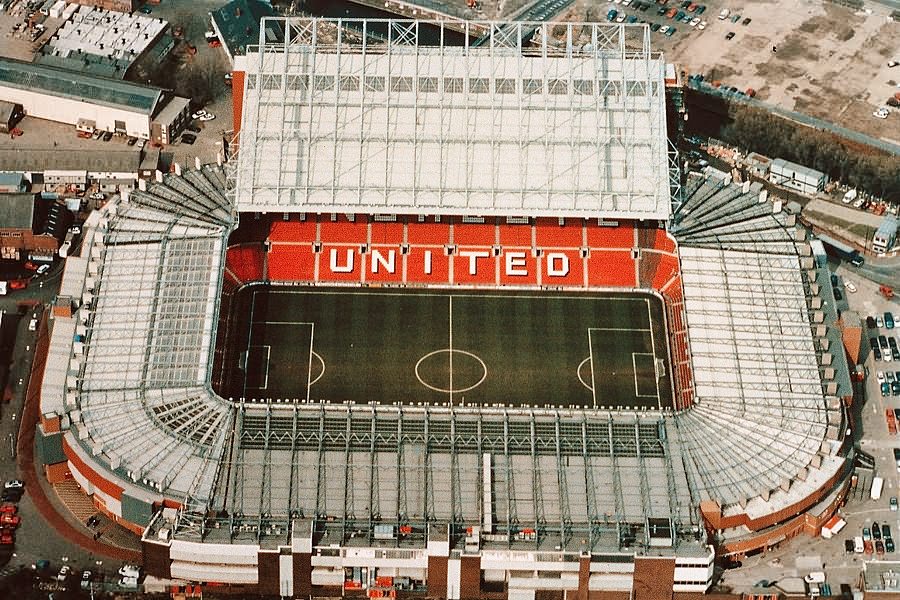
Old Trafford is an all-seater football stadium in the Trafford borough of Greater Manchester, England, and is the home of Premier League club Manchester United. With space for 76,212 spectators, Old Trafford has the second-largest capacity of any English football stadium after Wembley Stadium, the third-largest of any stadium in the United Kingdom, and the eleventh-largest in Europe. It is one of two stadia in the country to have been given a five-star rating by UEFA. The stadium is approximately 0.5 miles (0.8 km) from Old Trafford Cricket Ground and the adjacent Manchester Metrolink tram station.
The ground, given the nickname the Theatre of Dreams by Bobby Charlton, has been United's permanent residence since 1910, with the exception of an eight-year absence from 1941 to 1949, following the bombing of the stadium in the Second World War. During this period, the club shared Maine Road with local rivals, Manchester City. The ground underwent several expansions in the 1990s and 2000s, most notably the addition of extra tiers to the North, West and East stands which served to return the ground almost to its original capacity of 80,000. Future expansion is likely to involve the addition of a second tier to the South Stand, which would raise the capacity to over 90,000. The stadium's current record attendance was recorded in 1939, when 76,962 spectators watched the FA Cup semi-final between Wolverhampton Wanderers and Grimsby Town.
The ground has frequently hosted FA Cup semi-final matches as a neutral venue and several England international fixtures while the new Wembley Stadium was under construction. It also hosted matches at the 1966 FIFA World Cup and Euro 96 and the 2003 UEFA Champions League Final. Aside from football-related uses, Old Trafford has hosted Super League's Grand Final since the rugby league's adoption of playoffs in 1998 and the final of the 2000 Rugby League World Cup.
Tuesday, July 28, 2009
Old Trafford
Posted by Jaiganesh at 7:46 PM 0 comments
Labels: history, old trafford
Subscribe to:
Posts (Atom)

